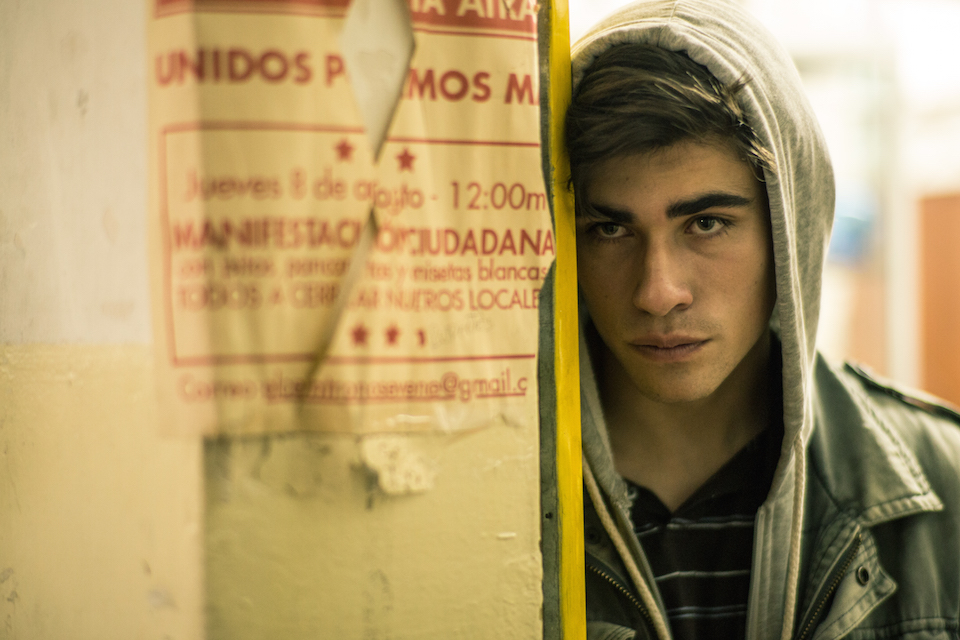 The use of a criminal as a charming narrator, leniently representing their misdeeds in order to create the necessary empathy to engage the audience is one of the most recurrent controversies in the art of storytelling. But how can we differentiate between a film with an anti-hero and one which glamorises crime?
The use of a criminal as a charming narrator, leniently representing their misdeeds in order to create the necessary empathy to engage the audience is one of the most recurrent controversies in the art of storytelling. But how can we differentiate between a film with an anti-hero and one which glamorises crime?
The movie Pickpockets: maestros del robo hits theatres on April 12. It’s a British-Colombian film co-directed by Peter Webber (Girl with a Pearl Earring), Diana Rico and Richard Décaillet.
The movie tells the story of Fresh (Emiliano Pernía) a petty thief who, after a stroke of luck, is trained by Chucho (Carlos Bardem), a skilled international pickpocket. These newly acquired skills prompt Fresh to go in search of more money and more adrenaline with his friends Doggy (Duván Prado) and Juana (Natalia Reyes). How far will they go?
With the right approach, stories about crime as seen through the eyes of the criminal can be worthy examples of the anti-hero narrative, where the main character has one or many unethical characteristics but their actions never feel entirely unjustified. With the incorrect treatment, however, the story will end up being just another case of crime glorification.
Pickpockets: maestros del robo never completely justifies the characters’ actions, and the movie is both inconsistent and feels like a glamorisation of one of the most pressing concerns among the Colombian population: the lack of safety on the streets.
During most of its 108 minutes, the film presents crime as an act of adventure and adrenaline, where the actual dangers never seem important, nor do the consequences for the victims.
This becomes even more evident as it fails to realistically depict crime in Bogotá. This movie has flaws all around, not only in terms of casting and costume design, but also in the implausible situations the characters get into, the repetitive dialogue, and the unconvincing motives behind their decisions.
Related: Colombian cinema: Ten must-see Colombian films
Perhaps the greatest mistake is that it never seems to understand who its audience is. If we measure it by Hollywood standards, the movie is dull, predictable and doesn’t bring anything new to the genre. If it’s meant to entice the local audience, its depiction of Colombian reality is full of errors, failing to portray a convincing setting that viewers can relate to.
In Colombian cinema from today!
2/5 stars
Mauro Rivera
Hungary for some culture?Eurocine is bringing the best of European film to Colombia this April.Get the popcorn ready, Eurocine’s back in Bogotá for its 24th edition. The European cinema festival is taking place in multiple cities in Colombia – from Barranquilla to Cali – and seven cinemas in the capital are getting involved. Guest of honour in 2018 is Hungary, who are bringing over 10 contemporary and classic films to the festival. Other countries represented this year include Ireland, Romania, Finland and Macedonia. Our favourite in the office is a UK production called ‘It’s All Gone Willy Tong’, can you guess why? One of the main themes this year is ‘Focus: In/Out’, which the organisers describe as “films that put under a magnifying glass the meaning of the senses”, so expect beautiful cinematography and a synaesthesiac aesthetic to dominate the festival. Eurocine also aims to showcase “stories that speak of the complexities of the human being, and our deep desires”, so there probably won’t be a screening of The Fast and the Furious. This cinematic event runs from April 11 to April 22 in Bogotá, so have a look at their website: festivaleurocine.com to see what’s on near you. With so many cinemas involved, and so many films to see, there’s bound to be one that catches your eye. |




